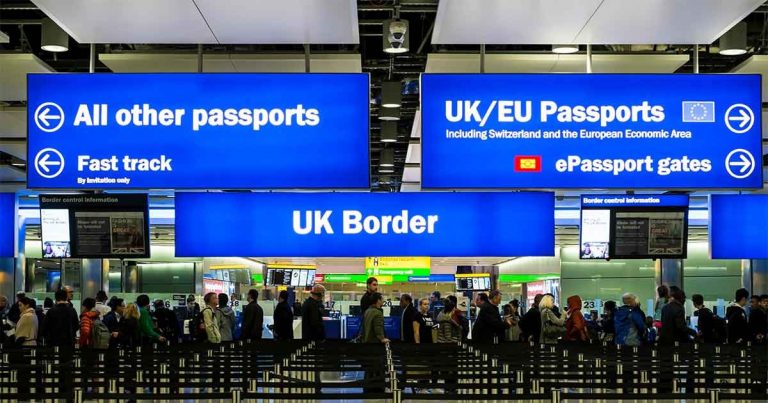UK Benefits from Migrants
September 28, 2018 | Expert Insights

British Prime Minister Theresa May recently signed off on a new immigration system that will go into effect after Brexit, where immigrants will be evaluated by skill and wealth. While there is a strong push for limiting immigrants in the country, their value to the country is not insignificant.
Background
The pace of global immigration has accelerated since the 18th century. Manning distinguishes three major types of immigration as labour, refugee and urbanization. This phenomenon began in the Industrialization period in Britain and spread to rest of the world and continues to this day in many areas.
The Home Office (HO) is a ministerial department responsible for immigration, security and law and order. The Office for National Statistics puts the estimated net migration to the UK for the year ending June 2016 at 650,000. Whilst immigration from the EU was the highest on record, immigration from non-EU countries was largely similar to the previous years. This is, however, is related to illegal immigrants in the region. It is hard to determine the number of illegal immigrants in the region. In 2007, the London School of Economics produced a report estimating the number of ‘irregular’ migrants at 533,000.
As negotiations continue, Prime Minister Theresa May has prioritized immigration policies, with a strong commitment to reducing unrestrained migration from the EU. Prime Minister May has unveiled a plan to structure UK’s immigration system into tiers, ranking skills and wealth.
Read more of our Immigration coverage here and here.
Analysis
The British government’s Migration Advisory Committee (MAC), a group of independent experts provided research and expertise to advocate for an immigration system based on skill. Using this information, the government has been motivated to restructure the existing system and prioritize skill and wealth. Under the new system, the cap on Tier 2 high-skilled workers could be removed and the professions included in it could be expanded.
The MAC report also advocated for the new system to not have a low-skilled visa option. However, this aspect was not incorporated as business owners sounded the alarm about the large pool of seasonal jobs that would go vacant if the low-skill visa was eliminated. Prime Minister May has backed a plan for the immigration system that emphasizes skill in the ranking but also creates an option for seasonal low-skill visas.
MAC’s report has also shown that immigrants contribute more to the British economy than their native counterparts do. Britain has an ageing population, which could benefit from the influx of young immigrants.
Part of the change in the immigration system is meant to curb the high rate of immigration from other EU countries. However, the MAC report shows that the EU workers are more skilled than the British workers, meaning that the new skill-based immigration system is unlikely to have the intended effect. In addition, Britons are more likely to take more in benefits than they pay in taxes, making them less economically favourable than immigrants. This also takes away from the argument that immigrants are a significant drain on public resources.
Finally, as immigration increases, there is more likely to be an increase in the number of jobs as well. Hence, migrants are not necessarily replacing British workers; rather they are competing for new jobs in the UK market.
Assessment
Our assessment is that the UK’s reforms to the immigration system are unlikely to have the full extent of the desired effect. We feel that switching to a skills-based system will not address all the challenges faced by the UK economy. In addition, it could result in a system like the American one, where evaluating immigrants for skills alone does not adequately limit the influx of immigrants. Finally, we feel that the MAC report fails to account for the underlying public sentiment. While immigrants might have a positive impact on the British economy, they also benefit significantly, thereby making the British workers less receptive to the changes they bring.








Comments